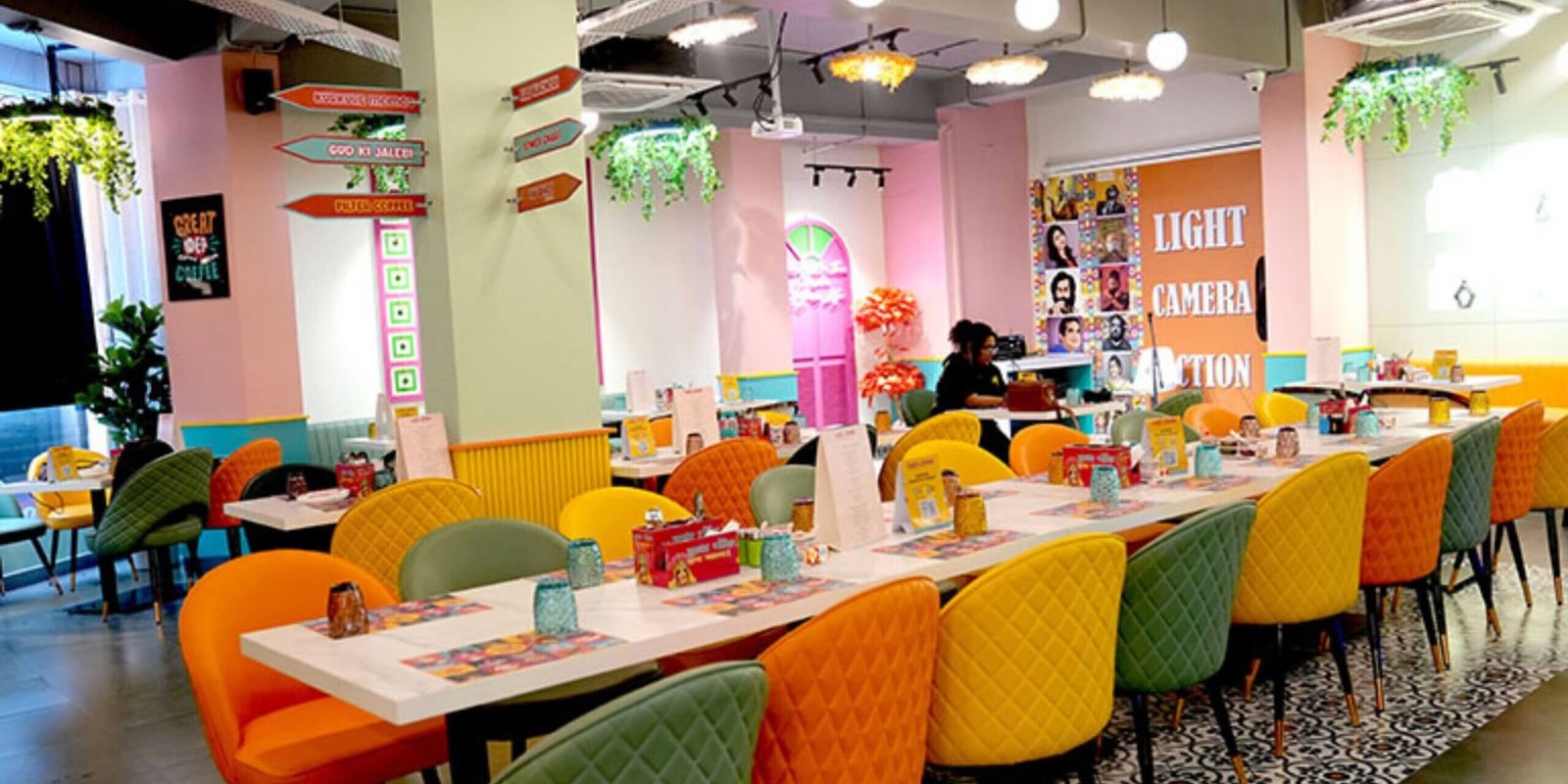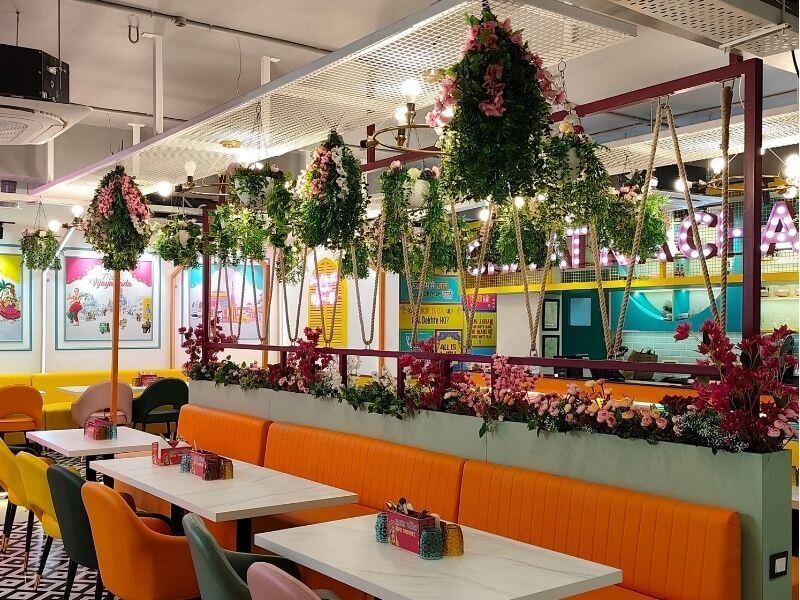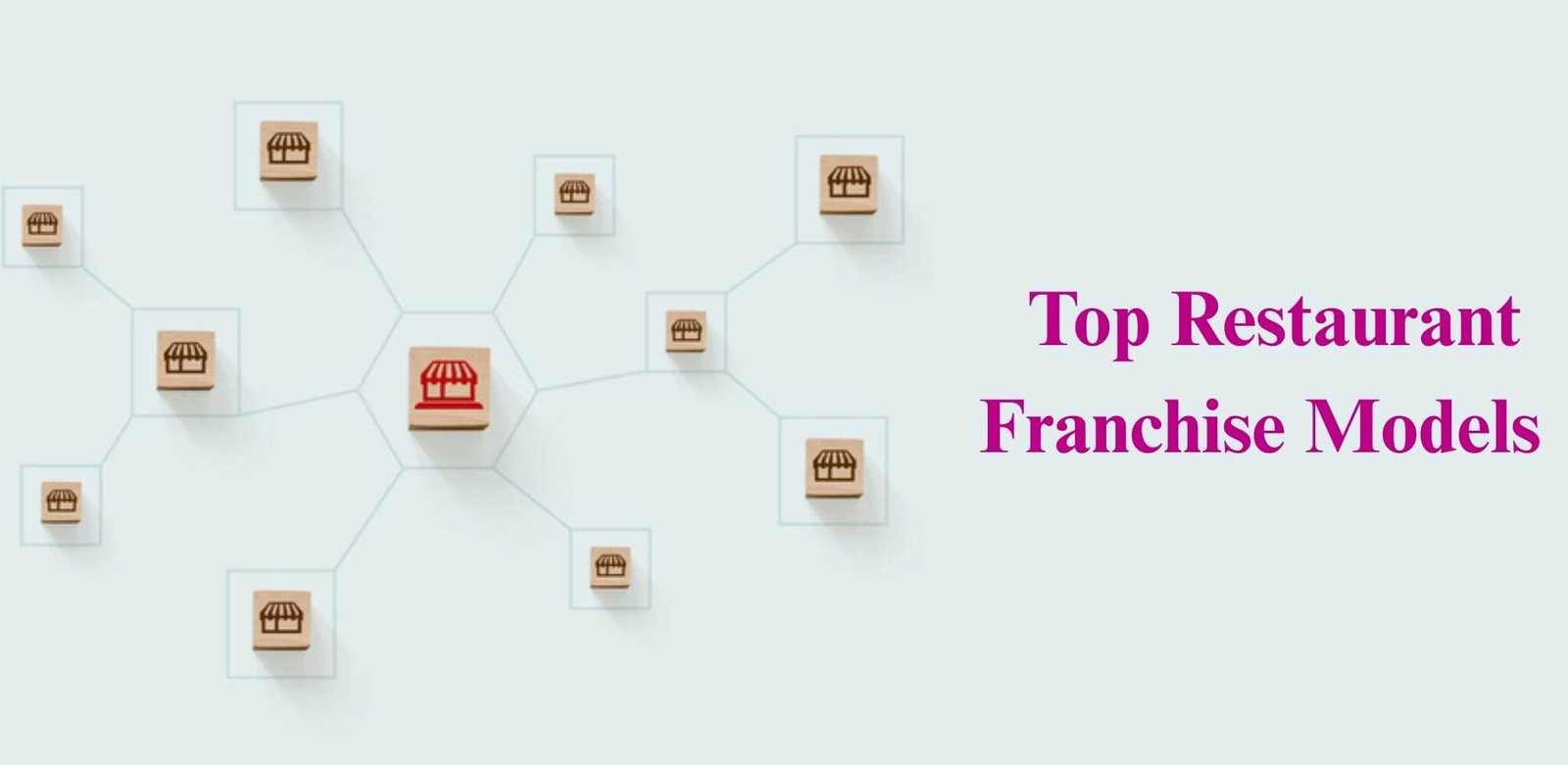
India’s love affair with vegetarian cuisine runs deep. From regional thalis to fast food-style chaats and global fusions with desi twists, the pure veg food market has exploded in the last decade. Entrepreneurs looking to invest in the F&B sector often face a tough question: Should you start your own vegetarian restaurant from scratch or invest in a veg restaurant franchise?
In this blog, we’ll explore both models—starting your own vegetarian restaurant versus buying into a vegetarian restaurant franchise—to help you make an informed decision. We’ll also spotlight Chaat Ka Chaska, a prominent name in the veg food franchise in India, to give you real-world insight into how successful franchising works in this space.
Understanding the Indian Vegetarian Food Market
Before diving into business models, it’s important to understand the scope and scale of the vegetarian food market in India. With over 30% of the population identifying as vegetarian, India has one of the largest vegetarian demographics globally. But more than just tradition, there’s a growing preference for clean, ethical, and health-focused eating, which is catapulting the demand for pure veg food franchises across metro cities and Tier II towns alike.
From street food like pani puri and aloo tikki to more formal sit-down dining experiences, the vegetarian restaurant business has diversified across pricing models, cuisines, and service styles. Entrepreneurs are no longer limited to conventional dhabas or thali joints. The market is now wide open for innovation, brand-building, and franchising.
Opening Your Own Vegetarian Restaurant: The Pros and Cons
The Creative Freedom and Ownership Advantage
Starting your own vegetarian restaurant from the ground up allows you to bring your unique food vision to life. From selecting the menu and sourcing ingredients to designing your brand identity, this model offers unmatched creative freedom. You build your restaurant’s DNA from scratch, which is both exciting and empowering.
However, this also comes with significant challenges. Setting up a new restaurant requires:
- High initial capital investment
- Hiring and training staff
- Vendor negotiations
- Branding and marketing from zero
- Risk of low footfall in early months

Without an established customer base or brand name, it may take years to break even. This is particularly risky in competitive urban spaces where the density of restaurants is high.
Operational and Marketing Struggles
Managing a vegetarian restaurant without prior experience can be overwhelming. You’re responsible for everything: from menu engineering and food safety standards to online visibility and social media presence. Many new restaurateurs underestimate the complexity involved in running a food business, especially in India, where consumer expectations are high and margins are slim.
Buying a Veg Restaurant Franchise: The Scalable, Profitable Route
Instant Brand Recognition and Established Systems
Investing in a veg restaurant franchise offers you the benefits of a proven business model. Whether you’re a first-time entrepreneur or an investor looking to diversify your portfolio, a franchise significantly reduces the risks associated with setting up a new restaurant.
Take, for instance, Chaat Ka Chaska—a rapidly growing pure veg food franchise that brings India’s favourite chaats and street food into a hygienic, quick-service format. With a tried-and-tested model, Chaat Ka Chaska helps franchisees with everything from location selection and staff training to raw material sourcing and digital marketing. It’s no wonder it is considered among the best food franchises to own in India today.
Streamlined Operations and Faster ROI
One of the major advantages of choosing a vegetarian restaurant franchise is operational support. Franchisors like Chaat Ka Chaska provide:
- Centralized supply chains
- Training modules
- Marketing kits
- Technology support
- Recipe standardization

This level of support enables even non-hospitality background individuals to run profitable food businesses. The entry barriers are lower, and the return on investment (ROI) is much quicker when you don’t have to start from zero.
Comparing Both Models: Key Decision Factors
Investment vs. Value
Starting your own vegetarian restaurant might seem cheaper upfront, but hidden costs like branding, marketing, trial-and-error losses, and setup delays often increase the total investment. In contrast, a vegetarian restaurant franchise offers a one-time franchise fee with built-in services and support systems, delivering better value over time.
Brand Loyalty and Marketing Advantage
Franchise brands already have customer trust and recognition, which significantly reduces your marketing efforts. A new restaurant will need to work extra hard to create its presence. With established franchises, you inherit the goodwill and digital visibility, especially crucial in today’s app-driven ordering ecosystem.
Long-Term Growth and Exit Strategy
Building your own brand might pay off in the long term—if you survive the early struggles. But franchises offer structured growth paths like multi-unit ownership, regional expansion rights, and profit-sharing schemes. For many, this structured path offers a more secure exit strategy or scalability model.
Why Chaat Ka Chaska Is Among the Best Veg Franchises in India
India’s love for street food never fades, but the need for hygiene, quality, and brand assurance has driven consumers to seek better experiences. Chaat Ka Chaska brilliantly captures this sentiment. With over 100+ franchise units across the country, it’s a trusted name in the veg food franchise category in India.
Here’s why it’s considered the best veg food franchise:
- Affordable Franchise Fee: One of the most budget-friendly franchise options in the food space.
- Quick Setup: Launch your outlet in as little as 30-45 days.
- No Need for a Master Chef: Standardized recipes and kitchen protocols make it easy to manage.
- High Footfall Locations: Strategic help in choosing prime spots.
- Pan-India Recognition: A name that already resonates with urban and semi-urban customers.
Whether you want to open a kiosk, café, or full dine-in space, Chaat Ka Chaska provides flexible formats, making it one of the best veg franchise in India by versatility and growth potential.
FAQs
Q1: What is the minimum investment required to start a veg restaurant franchise like Chaat Ka Chaska?
Chaat Ka Chaska offers franchise models starting from INR 10–15 lakhs, depending on the format (kiosk, QSR, or dine-in). This includes infrastructure setup, training, raw materials, and branding support.
Q2: Is it necessary to have prior experience in the food business to buy a veg food franchise in India?
Not at all. Most veg restaurant franchise models, especially Chaat Ka Chaska, are designed for ease of operation. Full training is provided, and no culinary expertise is required.
Q3: How long does it take to break even in a vegetarian restaurant franchise model?
On average, franchisees report breaking even within 12–18 months, depending on location, size, and customer footfall. Established brands with strong support systems reduce the break-even timeline significantly.
Q4: Can I run a franchise part-time or alongside another business?
Yes. Many vegetarian restaurant franchise owners hire managers and oversee operations remotely. However, involvement in the initial stages is recommended to ensure smooth functioning.
Conclusion:
The decision between starting your own vegetarian restaurant and buying into a veg restaurant franchise depends on your goals, experience, risk appetite, and timeline. If you’re passionate about building a food legacy from scratch and have the capital to ride out the slow months, starting your own veg restaurant might appeal to you.
However, if you’re looking for a safer, faster, and more scalable route into the booming veg food industry, then investing in a vegetarian restaurant franchise, particularly from a reputed brand like Chaat Ka Chaska—is the smarter choice. It offers the best veg food franchise support system, proven customer traction, and operational simplicity.
For most modern entrepreneurs, the franchise model ticks all the right boxes. It’s structured, scalable, and aligns perfectly with the Indian consumer’s ever-growing love for hygienic, high-quality vegetarian food.
